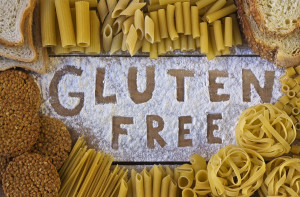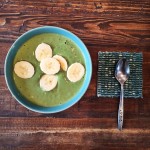Essential Nutrients for a Gluten Free Diet
By Chris Newport, Nutritionist and Head Coach
Gluten Free
The gluten free diet certainly seems like all the rage right now. While many people perceive it to be healthier or more natural, it’s definitely not for everyone, and can be poorly executed (as can any diet or eating plan). However, it’s necessary for many people, including those with celiac disease, certain autoimmune conditions and gluten sensitivity. If you’re embarking on a true gluten free diet, here are essential nutrients to pay attention to.
Iron
Celiac disease inherently causes concerns with iron deficiencies and anemia. Iron balance in the body is closely regulated by the gut. Since many people with gluten sensitivity experience gut disturbances, it’s important to have your healthcare provider check your iron status with a complete blood count (CBC) and iron panel (including ferritin). If an iron-rich diet is warranted, foods that are gluten free and iron rich include grass-fed beef, white beans, dark chocolate, liver, lentils, and oysters. While animal sources are the best absorbed (like beef, lamb and oysteres), foods that are rich in vitamin C (like strawberries, bell peppers, and citrus) aid absorption from vegetarian sources (like beans and chocolate). On the other hand, foods and supplements high in calcium may interfere with iron absorption, so eat or take those separately. Only take iron supplements under the care of your healthcare provider as too much can cause uncomfortable side effects (like constipation), affect the absorption of other nutrients, and serve as a prooxidant. The Recommended Dietary Allowance (RDAs) for adult non-pregnant women is 18mg and adult men is 8mg.
The Sunshine Vitamin
We make vitamin D by absorbing it through our skin from sun exposure. Of course, this isn’t recommended by your favorite dermatologist. Plus, the amount you convert depends on your age (we get worse at converting it as we age), your skin color (darker skin tones absorb less), where you live (the further north you live, the less exposure you get), and what type of lifestyle you live (how often are you caged indoors?!?). Vitamin D absorption is also of concern, so supplementation should be considered and, in many cases, it is recommended.
If you haven’t gotten your vitamin D tested lately, get it done! In fact, I suggest everyone get it tested in their annual physical. Generally speaking, the range for vitamin D is 30-100ng/mL, but the optimal functional range is from 45-80ng/mL, with athletes shooting for the higher range. Generally, this can’t be accomplished with food alone, although yogurt, milk, store bought nondairy milk, cod liver oil, canned salmon (with bones), and mushrooms are good food sources. If you are supplementing, but sure to take vitamin D3 with a meal that has fat in it.
Calcium
Why is calcium important? It’s helps your blood vessels contract and relax. It also aids muscle function, nerve transmission, hormone secretion and intracellular communication (how cells walk to each other to make sure you’re working like a rock star). It goes hand in hand with vitamin D. Clearly, it’s important for athletes, particularly since tiny amounts are lost in sweat (as well as into the toilet).
Many people newly diagnosed with celiac disease are temporarily lactose intolerant, so non-dairy calcium sources should be added to athlete’s diet such as canned salmon (with bones), leafy greens (especially mustard greens, cabbage, spinach, turnip greens and beet greens), broccoli, tofu and store bought nondairy milk. Gluten free grains like amaranth, quinoa and teff are also good sources. While calcium supplementation is sometimes necessary, it definitely shouldn’t be something to try without supervision from your healthcare provider. The Recommended Dietary Allowance (RDAs) for adults is about 1000mg. Keep in mind that the body can only absorb <500mg at once.
Vitamin B12
If celiac disease isn’t diagnosed or treated with a complete gluten free diet, B12 deficiency is common. Symptoms of deficiency can include weakness, fatigue, numbness in hands and feet, and poor memory. B12 is absorbed at the very end of the small intestines, assuming there’s enough acid in the stomach. Once on a gluten free diet, however, most people are able to adequately absorb B12 again and their levels return to normal. Short term supplementation may be necessary by shots or pills that are swallowed or dissolved under the tongue. Methylcobalamin is better absorbed than cyanocobalamin, so it’s important to read labels or get a recommendation from your healthcare provider. Most common food sources of B12 are inherently gluten free like beef liver, clams, meat, fish, eggs, and poultry. If you’re attempting to be gluten free AND vegan or vegetarian, supplementation is almost always necessary.
Need help going gluten free? We’re here for you. Contact us today!
References and Resources:
Gluten Sensitivity Fact Sheet by Sports, Cardiovascular and Wellness Nutritionists
Gluten Free Quick Start Diet Guide by Gluten Intolerance Group (www.gluten.net)
Mancini LA, Troijan T, Mancini AC. Celiac Disease and the Athlete. Current Sports Medicine Reports. 2011 Mar-Apr; 10(2): 105-8.
Dahele A, Ghosh S. Vitamin B12 deficiency in untreated celiac disease. American Journal of Gastroenterology. 2001 Mar; 96(3):745-50.




